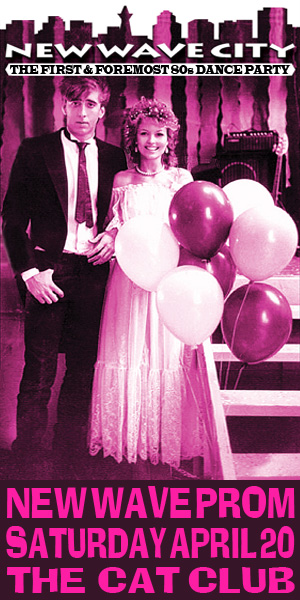EXAMINED LIFE We all know when it’s here. The chocolate hearts, the smell of cut flowers, the pink and red greeting cards and stickers and advertisements promoting dinner specials, couples massages, and just about anything that can, in any way, be connected to Eros. Modern culture (and capitalism) has gone off and running with this annual celebration of romance, which likely originated in a barbaric Ancient Roman fertility festival called Lupercalia before catapulting into commercial popularity (via Hallmark) a couple thousand years later. Today, Americans collectively spend close to 20 million dollars celebrating the Love Holiday, which makes some of us happy and some of us sad and some of us wondering if there might not be a better use for the 20 mil. But there is one thing on which we can all agree: Everyone knows what’s up on February 14.
And we’ve always known. Since we were young, we’ve learned that romantic love is the pinnacle of social experience—that you’re incomplete without your prince/princess/better half/missing piece. But the anecdotal suffering that this fairytale perpetuates for the partner-less, along with current sociological research, suggests we’re placing too much emphasis on romantic love—and not enough on friendship. The dollars tell the same story. Americans spend money on the things they care about, and we’re not spending millions of dollars to celebrate our pals each year.
Deep social connections have always been important. Historically, our species lived in tribes, and becoming disconnected from the tribe could result in your demise. In spiritual practice, close community has always been valued strongly. In Buddhism, the sangha (or community of practitioners) is considered to be just as important as the teachings. Today, studies show that social integration is one of the most important factors for a healthy and satisfying life, for both single and married folks. And we also know that a lack of solid friendships increases the risk of depression and suicide. Remember when Elvis sang, “I’m so lonely, I could die”? It wasn’t hyperbole. For many people, loneliness and isolation can quickly devolve into a precarious life-or-death situation.
Light social connections, of course, are easy to have. Personally, I have 1,134 friends. On Facebook. You may have less or, if you’re more of an extrovert than I am, you might have a great many more. But of those gobs of likers and political-posters and joke-makers and meme-sharers, how many of those friends are really … friends? That’s not to say acquaintances aren’t important. We benefit from having good coworkers, fun activity partners, and friendly neighbors; these connections contribute to the fabric of our interconnected lives.
Real friendships, however, are different. Like marriage, real friendship is a contract. You may not sign an actual paper (or have to pay lawyer fees if the friendship doesn’t last), but we’d be a better functioning society if we took our friendships more to heart. And friendship has been a lost art for some time. CS Lewis was bemoaning the devaluation of friendship in his 1960 tome The Four Loves, way before social media, quite literally, changed the definition of the word “friend.”
So, what is a real friend? It may sound hard to quantify, but here are five basic principles to embody—and look for—in a true friendship.
-
Dependability and kindness Yes, this is number one because it’s that important. Good friends show up for one another in a consistent, open-hearted way. They stay in touch and check in if they haven’t heard from the other person in a while. They’re happy to sacrifice their own personal comfort to care for one another in a time of need. They return calls and messages quickly, and show up to—or inquire about—important events. They feel comfortable asking for reasonable favors. They care deeply and are present in one another’s lives.
-
Authenticity and devotion You want to be able to be yourself around a real friend, and vice versa. That means sticking it out through hard times. A real friend won’t break the friendship contract because the other person is suddenly depressed or ill or acting neurotic. A real friend stays the course. There’s a positive-thinking theory that says we should only have successful friends who challenge us to grow, but guess what? Depressed friends challenge us to grow, too! From a Buddhist perspective, having friends who are experiencing success will teach you to have mudita or sympathetic joy; caring for friends who are going through a hard time will teach you karuna or compassion. Also: Studies show that positive thinking is more contagious than negative thinking in friend circles. If you’re in a good place in your life, consider it an honor to be there for a stressed-out friend, and lift them up. (Of course, if a friend is no longer dependable or kind, that’s a different story, and you may have to reevaluate the connection.)
-
Evolution Friendship, like any important relationship, presents an avenue for developing oneself. That development might be emotional, creative, physical, or intellectual, but the sign of a true friendship is that you are evolving within it.
-
Dedication despite romantic relationships Even if you are in a secure relationship with a wonderful partner who fills all the roles of best friend, lover, and advisor, you still need friends. For one, studies show it’s good for your marriage to have friends! Plus, there are people out there who need you. Friendship is an essential way of contributing to the world in which we exist. And if you’re newly in a relationship, remember: Your friends still need to feel needed. So, even if your partner shows up for all the trials and tribulations in your life, ask your old friend to show up, too. And return the favor whenever possible.
-
Shared value of friendship In order to have strong friendships, both people must value the sanctity of friendship. You may think you do, but there’s likely one item on this list you could work on—and probably one you’d like a friend to work on. If both of you value friendship, you can have a conversation about your friendship contract and work together to strengthen it.
If you’re feeling lonely and isolated, it may very well be that your real friend ability and/or your real friend supply is depleted. Check in with yourself and ask if you’ve been showing up in the way you value. Then, write down the names of the people closest to you, and consider the above list. How do they fare?
Oftentimes a friendship is failing because the two friends no longer have the same friendship needs. Having unavailable friends can be worse than having no friends at all—and take a toll on your self-worth. If you feel like you’re showing up more than your buddy, you’d do well to have a talk; if that’s not successful, consider moving away from the friendship—or at least, holding it with less importance—to make space for another committed friend to come into your life. Everyone should have at least five real friends (near or afar) who are willing to invest in the connection, and if you’re spending a lot of time hurting over an unavailable or unkind friend, you’re missing out on time that could be spent investing in a new, more available friend.
Many friendships will come and go over time. Just because you and a friend are in a deep friendship for part of your life doesn’t mean it will last forever. But with care and commitment, some friendships can last a long time, even a lifetime. And on Valentine’s Day, that’s just as worthy of attention as a capitalist version of Lupercalia.






